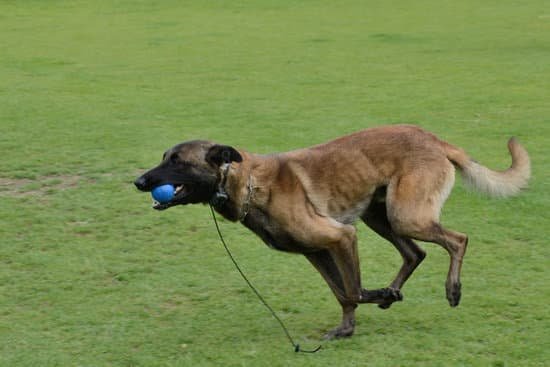Introduction
There are many different types of therapy dog breeds, from tiny Chihuahuas to large Labradors. Each breed has its own unique qualities that make it suitable for different forms of therapy. Yorkies, or Yorkshire Terriers, are one such breed that is especially suited for becoming a therapy dog.
Yorkies are small in size with a high energy level that makes them excellent candidates to be both loyal and protective companions who provide comfort and compassion to those who need it the most. With their outgoing personalities and friendly nature, they can easily bond with humans and provide solace through lots of cuddling and companionship. Because they don’t usually bark excessively, they also have an advantage in areas where disturbances should be kept at a minimum, such as hospitals or nursing homes.
To properly train your Yorkie as a therapy dog, you will need patience, consistency, time-management skills and plenty of positive reinforcement. It’s important to socialize your pup early on by regularly exposing it to new experiences and environments so that it grows into an even-tempered adult who can cope with the pressures of working in a therapeutic environment. You should also establish basic obedience commands such as sit, stay and come around the same time so that the dog responds accordingly during therapy sessions. Finally, you want to solidify these behaviors through regular practice sessions that should involve repetition with rewards when done correctly. Along with teaching your pup how to calm down if necessary in high-tension situations, you may even want consider additional training like visiting patients together or getting certified together if necessary! With proper training and socialization care, your Yorkie can become an invaluable part of pet therapy programs near you!
Yorkie History and Personality
The Yorkshire Terrier originated in the 1800s, in the area around Bradford and York in the North of England. They were bred as small vermin hunters that could fit into tight spaces and were used by industrial workers to help remove the pests from their factories. The breed developed over time and was recognized as a specific breed by the Kennel Club in 1886.
Yorkies are known for being especially loyal companions, with a few breeds known to get attached to just one person for life. They are high-energy, curious dogs that have excellent problem solving and communication skills. Their intelligence is captured by their ability to understand language and pick up on voice intonation. Their strong bonding ability allows them to develop deep relationships with many people quickly and easily adjust to changing environments or routines without issue. Furthermore, they are an immensely sociable dog which also suits them well as therapy animals as they can easily adapt to many different kinds of people without issue. As these small-sized canines become increasingly popular across households, so has their popularity as companion animals and therapy dogs too!
Temperament and Training Requirements
Yorkies are small dogs with a lot of energy and loyalty, making them ideal therapy dogs. But before being considered a viable therapy dog candidate, Yorkies must possess the right temperament, as well as necessary training.
The Yorkshire Terrier is actually a grouping of three different breeds: the Standard Yorkie, the Parti-Color Yorkie, and the Biewer Yorkie. They all share some common temperamental qualities, such as moderate activity levels and an outgoing nature. As companion animals, they have an affectionate disposition and are very loyal to their owners.
Standard Yorkies have an energetic temperament that makes them suitable for physical activities such as Agility training. Parti-Colored Yorkies tend to be more laid back than Standard Yorkies and prefer more sedentary activities such as helping to provide comforting support at home for their owners or in assisted living situations. Finally, Biewer Yorkies have energetic personalities with higher needs for mental stimulation compared to their other breed counterparts.
When it comes to training requirements for each breed of Yorkshire terrier, there are four distinct areas that need to be addressed (socialization; simple obedience commands; safe interactions with children; trouble shooting basic behavior problems). Starting with socialization, it’s important that all puppies experience positive interactions within various settings (home, vet’s office) as early on in life as possible in order to help avoid any potential behavioral issues later down the line. Simple obedience commands such as sit stay or come can be taught using treats and reward-based systems and should always be reinforced through consistent practice until they become second nature for your puppy. Lastly, by allowing your pup ample opportunities to safely interact with children while still providing close supervision will teach them how to properly engage with our younger population in social settings like schools and hospitals where they may serve as therapy animals one day! Additionally, being ableto problem shoot common behavioral problems such as chewing or barking excessively is key for all canine companions regardless of what profession you’d ultimately like them to pursue!
Obtaining and Maintaining Therapy Dog Certifications
Yorkies are an increasingly popular choice for therapy dog candidates because of their small size, intelligence, and trusting personalities. To become a therapy dog, Yorkies need to acquire three very specific certifications from reputable organizations: basic obedience training from a professional trainer or group class setting; the Canine Good Citizen certification from the American Kennel Club; and the Pet Partner certification through Therapy Dogs International.
The basic obedience training is designed to ensure that the therapy dog understands basic commands such as “sit,” “down” and “stay.” Additionally, it allows handlers to gain control over their dogs so they can effectively steer them away from potential danger while also allowing handlers to give their dogs necessary corrections should an undesirable behavior occur.
After Yorkies complete basic obedience training, they can be tested for Canine Good Citizenship Certification through the American Kennel Club. This certification evaluates the temperament and social skills of each dog on a wide range of criteria including responsiveness to handler commands, confident interaction with strangers, acceptance of physical manipulation, controlled healthy aggression with other animals, calmness in challenging situations (e.g., loud sounds) and composure while being handled by veterinarians or groomers.
Once both certifications have been acquired – every 2 to 3 years that CGC certification must be renewed as must TDI’s Pet Partner Certification – then it is time for prospective therapy teams to apply for Pet Partner Certification through Therapy Dogs International (TDI). In addition to taking various evaluations from qualified examiners – which test things like teamwork between handler/dog pairs and knowledge of safety protocols – applicants must also provide documentation supporting good health and physical soundness; proof of current vaccinations; spay/neuter status for all dogs over 6months in age; muzzle availability when required; good bathroom etiquette at all times in public settings; ongoing professional positive reinforcement training; overall compatibility with people-related environment activities; suitable dress/décor coordination when working among people with fine sensibilities and ethical requirements related to human interactions. After successful completion of these examinations and upon approval by TDI officials – by both owner/handler(s) as well as awaiting pet recipients – thereupon will become official TDI Certified Therapy Dog Teams ready to accept job assignments with respective Pet Partners’ sites across varying services fields such as retirement homes, hospitals, daycare centers etc consulting services dispatched accordingly via phone call intromissions shared between approved professionals centralizing pet recruitment programs thereby recruiting additional applicants deserving this special privilege tailored towards utilizing trained hardworking canines helping improve quality lives amongst those whom may benefit most having them around now or in future dates ahead.
Training Tips and Different Approaches
The best way to train a Yorkie as a therapy dog is to start with basic obedience training. This should focus on teaching the pup commands such as sit, stay, come, down and heel. Rewards-based training techniques are ideal for working with a Yorkie, since they thrive in an environment where positive reinforcement is given for good behaviour. It’s important to also add variations of these commands every time during the training sessions – this will help keep your pup’s interest and prevent boredom from setting in.
Once you have achieved good results with basic obedience training, you can move forward to specific therapy dog commands. The key here is teaching your pooch how to behave around both people and animals, as well as how to react appropriately when triggered by various situations. Keeping the commands simple is important – determine only those which are necessary and review them regularly. Additionally, it’s important not to put too many expectations on the pup; when their job requirements become overwhelming they may become stressed or unresponsive.
It’s also important to take into account different approaches you can use while training your Yorkie as a therapy pup – this will depend both upon their temperament and breed character traits. As an example, some pups may require a more structured approach while others may be more responsive with a clicker system or other rewards-based methods. However, no matter what kind of approach works best for your pup it’s important that the process includes lots of encouragement and praise to create an enjoyable experience for both you and them. When implemented properly, these gentle methods will help build trust between trainer and fur baby – an essential component of successful therapy dog training! Lastly, it’s best not to overload your Yorkshire Terrier with too many stimuli during their learning process; this could lead them feeling overwhelmed very quickly – so taking things slow is always best in order for them to develop into patient yet well-rounded therapy dogs.
Homework and Practice Exercises
Yorkies are loyal, energetic, and highly intelligent dogs. As a result, they make perfect therapy dogs! Training your Yorkie as a therapy dog requires time, patience, and consistency. Here are some tips to get you started:
Reward positive behaviors – Reward desired behavior with treats and praise every time. Your Yorkie will learn quickly that desirable behaviors lead to positive reinforcement and will be more inclined to repeat them.
Redirect negative behaviors – Redirect any unwanted behavior by offering a chew toy or distracting them with another activity. Be consistent when disciplining your dog by never rewarding unwanted behavior and always featuring appropriate punishment such punishments should be delivered calmly yet firmly in order to reinforce the desired response.
Practice commands – Constantly practice commands such as “sit,” “stay,” “come,” etc., with your dog so that it becomes second nature for them to obey these requests from handlers and/or patients.
Train in similar situations – Give your Yorkie exposure to different environments that mimic real-life scenarios so that it is comfortable when it needs to perform its duties as a therapy dog. For example, take walks at different parks around town or bring your pup along on errands that involve being around other people. This way your pup will become used to different smell, sights, and sounds helping them become even better therapy animals.
Socialization – The most important thing you can do is ensuring your pet gets comfortable around new places and people. Plan regular play dates at the park or have friends come over for snuggle time; socializing is essential for any healthy pup but especially for therapy dogs who need comfortability around both familiar and unfamiliar faces since their job entails providing companionship for their handlers or patients in need of assurance and moral support!
Final Words
Yorkies, or Yorkshire terriers, make excellent therapy dogs thanks to their gentle dispositions and loyal personalities. While training a Yorkie for therapy work is not an easy feat, it can be made easier with the right resources and proper guidance. Here are some suggestions on additional resources for training and continuing education in order to help your Yorkie become an effective therapy dog:
1. Take advantage of online courses and tutorials offered by organizations like Therapy Dogs International, American Red Cross and Delta Society; these courses will equip pet owners with the knowledge and skills needed to ensure their Yorkies are trained properly for therapeutic duties.
2. Attend seminars and workshops hosted by local animal mental health professionals regarding how to properly handle therapy dogs-in-training. These events can provide valuable tips on recognizing behaviors that may trigger anxiety in patients as well as methods on de-escalating stressful situations when they occur.
3. Invest in high quality materials that support successful occupational therapy dog programming such as books, DVDs and webinars featuring expert insight into proper maintenance of therapy dog activities including team obedience drills, exercise regimens and protocol maintenance practices.
4. Utilize reputable canine behaviorists who specialize in helping pet owners harness the natural abilities of their therapy dogs while also teaching them what behaviors are inappropriate or counterproductive towards achieving successful patient interactions. With advanced education sanctioned by credible organizations such as AAA Pawsitive Solutions® Program specialists, puppy trainers/handlers can ensure their Yorkies possess the necessary temperament from day one of their training journey!
5. Finally, join clubs or organizations whose members share stories about working with psychotherapy animals–the success stories of others can be a major source of inspiration for aspiring owners looking to join this specialized field!

Welcome to the blog! I am a professional dog trainer and have been working with dogs for many years. In this blog, I will be discussing various topics related to dog training, including tips, tricks, and advice. I hope you find this information helpful and informative. Thanks for reading!





